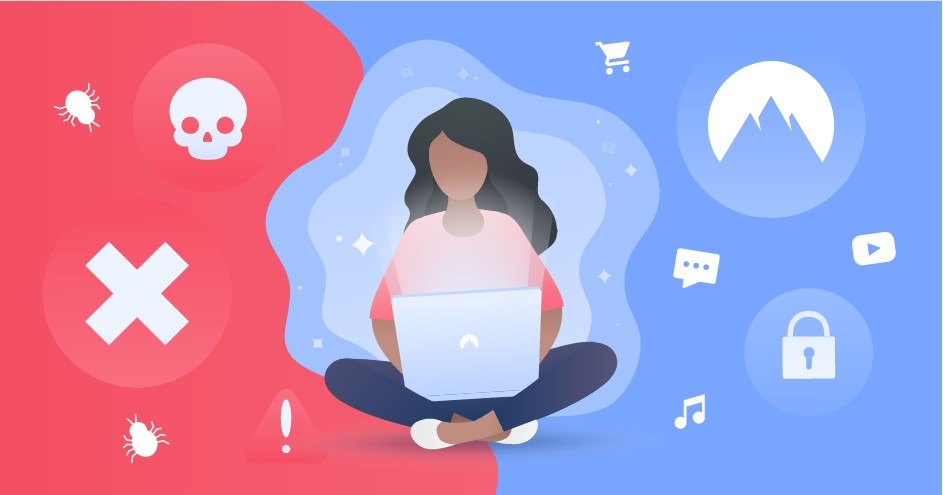Online security has become paramount as cyber threats continue to evolve. One effective way I’ve enhanced my cybersecurity measures is through the use of multi-hop VPNs. These tools provide an additional layer of security that traditional VPNs cannot match. Below, I’ll explain how multi-hop VPNs work and the benefits they offer.

What is a Multi-hop VPN?
A multi-hop VPN, also known as a double VPN, routes your internet traffic through multiple servers before arriving at the final destination. Unlike standard VPNs, which connect you to a single server, a multi-hop VPN adds a second layer of encryption. This process significantly improves anonymity by making it much harder for anyone to trace your online activities back to you.
When I use a multi-hop VPN, my data first travels through one server, is encrypted, and is then sent to a second server where it is encrypted again before reaching the internet. This dual-layer of protection is crucial for anyone looking to maintain privacy online.
✅ Current deal: 🔥 Get NordVPN with up to 75% OFF! 🔥
Benefits of Using Multi-hop VPNs
Enhanced Privacy
One of the primary reasons I turned to multi-hop VPNs is the enhanced privacy they offer. With my data bouncing between multiple servers, it becomes increasingly difficult for hackers and unwanted entities to trace my online activities.
Improved Security
Multi-hop VPNs provide an added level of encryption. In situations where data breaches are a concern, this extra security can be vital. Even if one server is compromised, my data remains safe because it is still protected by the second layer of encryption.
Bypassing Censorship
In regions where internet censorship is rampant, a multi-hop VPN can help bypass restrictions. By routing my connection through multiple servers, I can access content that might otherwise be blocked.
Masking IP Address
Multi-hop VPNs do an excellent job of masking my IP address. Each hop changes the IP, making it nearly impossible to identify my actual location. This feature is particularly advantageous when engaging in activities where privacy is paramount.
Anonymity
When I use a multi-hop VPN, my online presence becomes more anonymous. This level of anonymity is essential for individuals who want to protect their identity, especially in environments where surveillance is common.
How to Set Up a Multi-hop VPN
Setting up a multi-hop VPN can seem daunting, but it’s a straightforward process. Here are the steps I typically follow:
-
Choose a Reliable VPN Provider: Not all VPN providers support multi-hop connections. I ensure that the service I select has a solid reputation for privacy and security.
-
Install the VPN Client: After selecting a provider, I download and install the VPN application on my device.
-
Connect to a Multi-hop Server: Once the application is installed, I select the option for multi-hop connections. Most providers will allow me to choose the specific servers I want to connect through.
-
Configure Additional Settings: Before going live, I check the settings to ensure that features such as a kill switch and DNS leak protection are enabled.
-
Test the Connection: I always verify the effectiveness of the multi-hop connection by running a few tests. Checking my IP and ensuring there is no leakage reinforces my confidence in the setup.
✅ Current deal: 🔥 Get NordVPN with up to 75% OFF! 🔥
Tips for Maximizing Online Security with Multi-hop VPNs
To further enhance my online security while using multi-hop VPNs, I’ve compiled a list of tips that I find useful:
- Regularly Update VPN Software: Keeping the software up-to-date ensures I have the latest security features and patches.
- Utilize Strong Authentication: Using multi-factor authentication for accounts adds another security layer beyond the VPN connection.
- Be Cautious with Public Wi-Fi: I avoid accessing sensitive information when connected to public networks, even when using a VPN.
- Avoid Free VPN Services: Free services often compromise on security to monetize user data, whereas I prefer reliable paid services.
- Monitor for IP Leaks: I routinely check for any potential leaks that can expose my original IP address, using tools available online.
- Educate Myself: The cybersecurity landscape is constantly changing. I make an effort to stay informed about the latest threats and solutions.
Conclusion
Utilizing multi-hop VPNs has been a game changer for me in enhancing my online security. By routing my internet traffic through multiple servers, I’ve considerably elevated my level of privacy and protection. The additional layers of encryption and anonymity they provide help safeguard my digital footprint from prying eyes.
While no tool offers absolute security, multi-hop VPNs come closer than many alternatives. By implementing the tips I’ve shared, anyone can significantly boost their online security. Being proactive about cybersecurity is essential in today’s digital age, where threats are abundant. With the right strategies, I’ve maximized my online safety, and so can you.
Affiliate Disclosure: By clicking on our links, we may earn commissions at no additional cost to you.